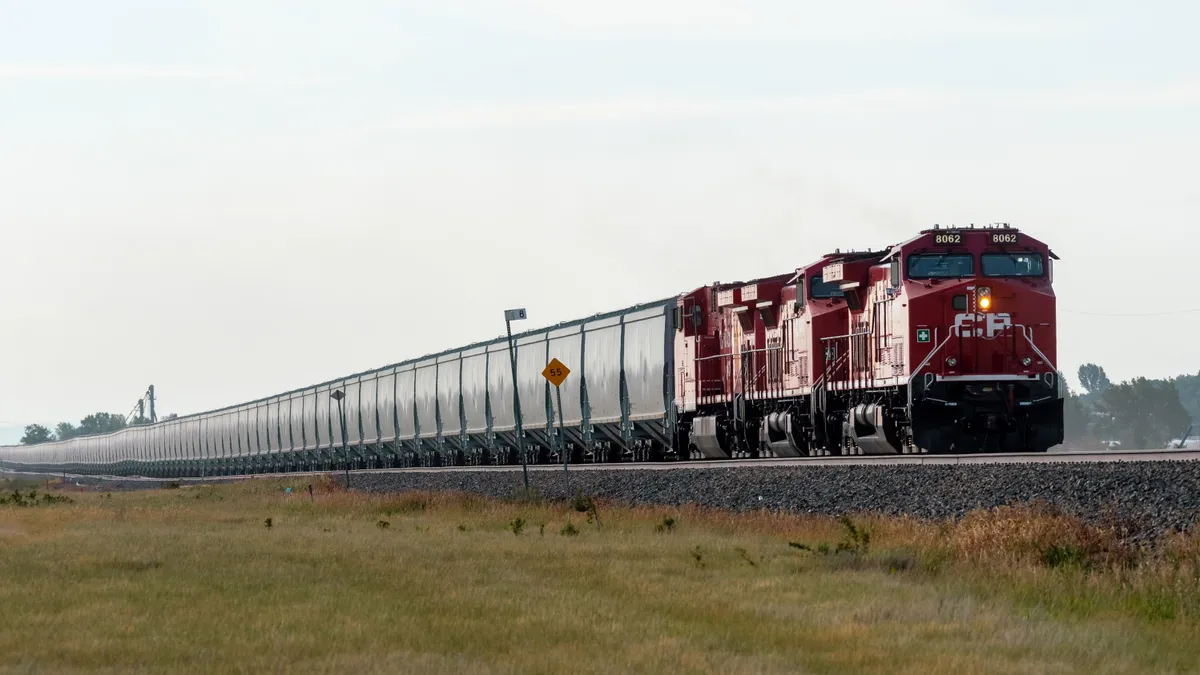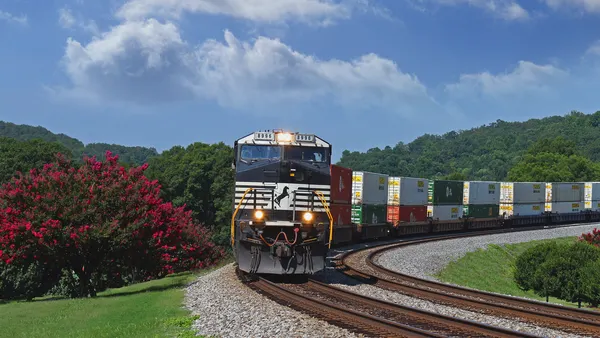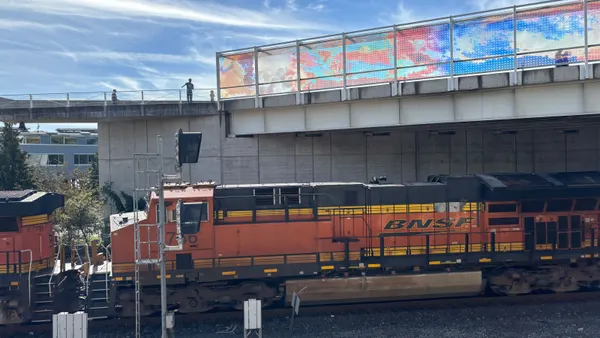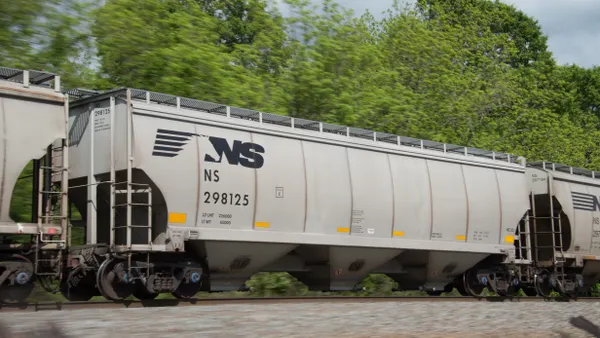UPDATE: March 20, 2022: Canadian Pacific’s lockout of roughly 3,000 employees represented by the Teamsters Canada Rail Conference took effect Sunday. The railroad "is executing a safe and structured shutdown of its train operations across Canada and will work closely with customers to wind-down Canadian operations," it said in a statement.
The union, which has begun to strike around the country, said issues around wages and pensions continue to be the main obstacle to negotiations. Also at issue are "working conditions that call into question the railway’s capacity to recruit and retain workforce members," according to a statement.
Dive Brief:
- Ahead of a potential Canadian Pacific work stoppage that could shift more volume to trucking, spot rates are climbing and Maersk is implementing surcharges on vulnerable trade lanes.
- Truckload spot rates from Calgary to Minneapolis are $3.03 per mile on average including fuel, up from $1.17 a year before, according to data from DAT. Maersk has implemented contingencies such as surcharges for dry van ($415) and reefer ($445) hauls for Toronto/Montreal, the company said in a customer advisory.
- Canadian Pacific plans to lock out approximately 3,000 Teamsters Canada Rail Conference employees Sunday, including conductors and engineers, if the union and the company are unable to reach a settlement or agree to binding arbitration. The railroad issued the notice after the employees voted to authorize a strike action. "We take this action with a view to bringing this uncertainty to an end," Keith Creel, president and CEO, said in a statement.
Dive Insight:
There are plenty of truckload carriers who can pick up the volume slack between Calgary and Ontario if a work stoppage occurs, said DAT principal analyst Dean Croke. However, "spot rates will go up for sure" in affected lanes, he added. This comes as shippers are already facing the likelihood of trucking companies passing on higher fuel costs.
The ripple effects of Canadian trucker protests are also still reflected in rates and will compound challenges if shippers need to adapt to a work stoppage. Truckload spot rates from Laredo to Toronto were around $1.72 per mile, including fuel, before the protests began — now rates are $3.52 per mile due to capacity constraints, according to Croke.
"It's not a given that truckload capacity will pick it up, because it seems like there's fewer drivers," said Croke, referring to freight that Canadian Pacific couldn't service if a work stoppage happened.
The Teamsters Canada Rail Conference said earlier this month that the primary issues facing labor "include wages, benefits and pensions."
According to a Canadian Pacific news release Wednesday, the union's recent proposal "included an even more onerous pension demand." The railroad has commenced a contingency plan and "will work closely with customers to achieve a smooth, efficient and safe wind-down of Canadian operations." But it also said earlier this month that a work stoppage of any duration will impact virtually all commodities within Canada's supply chain.
Canadian Pacific's network covers cities throughout southern Canada and parts of the northern U.S., reaching as far south as Kansas City. It's a major carrier for commodities such as grain, coal, potash and fertilizers.
On Wednesday, four U.S. senators wrote in a letter to Canada's Prime Minister Justin Trudeau that a strike "would create a freight capacity crisis that will have a profound impact on our nation's agriculture and energy industries." Canada and the U.S. rely on CP to carry crude oil from Alberta to U.S. refineries.
"Without the ability to move heavy Canadian crude, fuel supply shortages will be exacerbated and agricultural producers who rely on diesel to power their equipment will be forced to pay even higher fuel costs," the senators wrote.
The Canadian Manufacturing Coalition, which represents manufacturing trade associations in Canada, said in a statement Monday that its industry can't afford another major transportation network interruption.
"This situation must be avoided at all costs, and we implore both sides to reach an agreement now," the coalition said. "Failing that, the federal government must signal its intent to intervene immediately to avoid a work stoppage, the further fracturing of supply chains, and another hit to Canadian manufacturing."
Sarah Zimmerman contributed to this story.















